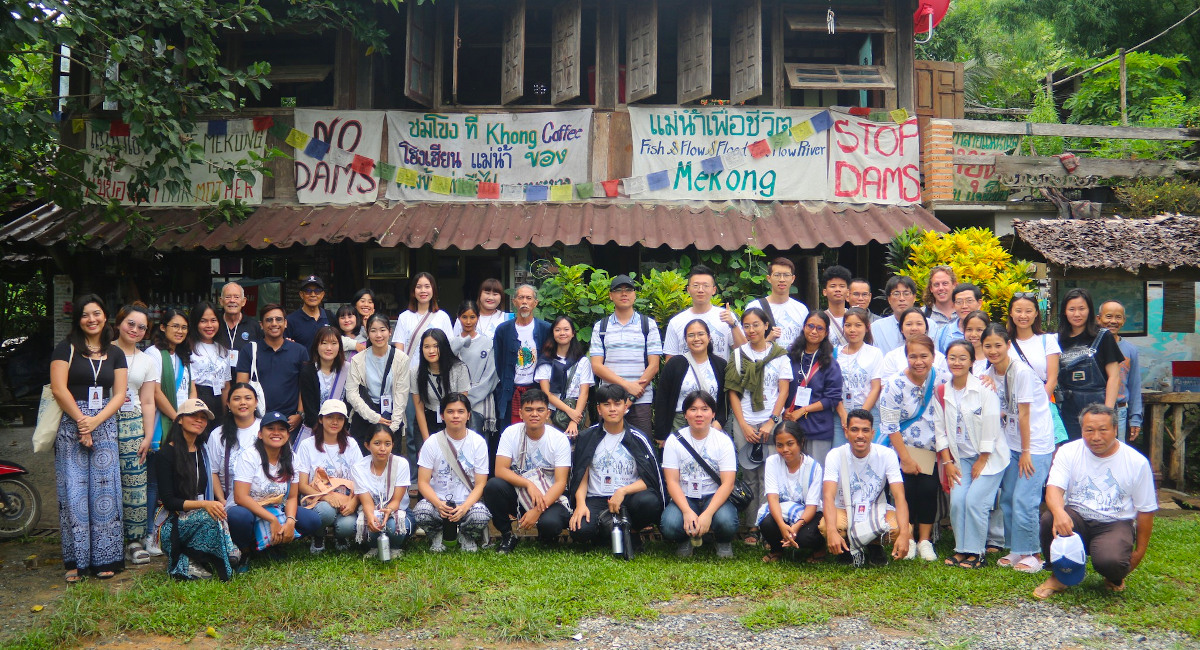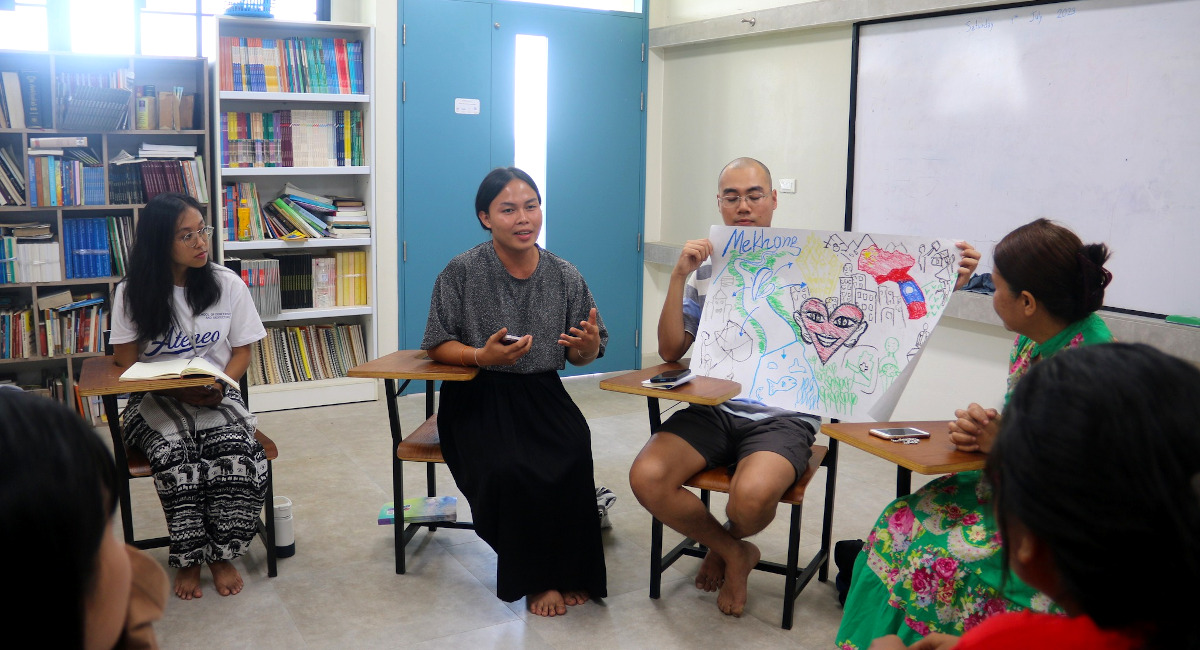 The 12th Service Learning Program, organised by the Association of Jesuit Colleges and Universities in Asia Pacific (AJCU-AP), is underway in Chiang Rai, Thailand, hosted by Xavier Learning Community.
The 12th Service Learning Program, organised by the Association of Jesuit Colleges and Universities in Asia Pacific (AJCU-AP), is underway in Chiang Rai, Thailand, hosted by Xavier Learning Community.
Running from 7 to 26 August, the 18-day programme is centred around the theme, “River, Mountain, People: The Art of Beings (Discernment and Peace)”. It is a response to the call of General Congregation 36 for a “renewed fervour for reconciliation with God, humanity, and creation”.
The theme is built around three focal points:
River: Geopolitics of Southeast Asia, including the construction of dams, the significance of the Mekong River, and the concept of shared boundaries
Mountain: Immersion in nature, with a focus on village life, the importance of caring for nature, and living harmoniously within it
People: Emphasis on marginalised communities such as migrants, refugees, and other marginalised individuals
A highlight of the programme is its emphasis on the Theology of Rice, where rice symbolises God’s gift of life. It delves into how the Gospel urges us to live in harmony with nature and neighbour, establish just social structures, and remain open to renewal.

Students take part in various interactive activities, including immersions, workshops, educational trips, and cultural engagements. These activities allow them to explore the rich culture, traditions, and distinctiveness of the Chiang Rai community, while also gaining insights into local challenges and struggles. The programme is deeply rooted in Pope Francis’ encyclical, Fratelli Tutti, which aims to foster a universal aspiration towards fraternity and social friendship. As Pope Francis says, “No one can face life in isolation,” and it is indeed time to “dream as a single human family”.
Throughout the three weeks, students have been participating in reflective sessions and spiritual dialogues. Among the places they’ve visited are the Rai Chern Tawan Meditation Center to gain insights into Buddhism, the Mekong School in Chiang Khong District, which focuses on environmental changes and the impacts of development in the Mekong River Basin, and the “Golden Triangle,” the point where the borders of Thailand, Myanmar, and Laos converge.
An essential part of the programme involves instilling the value of service through a collective legacy project to be crafted by the participants in response to their learning, reflection, and discernment.
The delegates in this year’s Service Learning Program come from Sophia University, Japan; Instituto São João de Brito, Timor-Leste; Sanata Dharma University, Indonesia; The University of Hong Kong, Hong Kong, China; Campion Institute, Myanmar; Ateneo de Manila University, Philippines; Xavier University (Ateneo de Cagayan), Philippines; Ateneo de Davao University, Philippines; and Xavier Learning Community, Thailand.
Related story: River, mountain, people: Reflections from the 12th Service Learning Program

